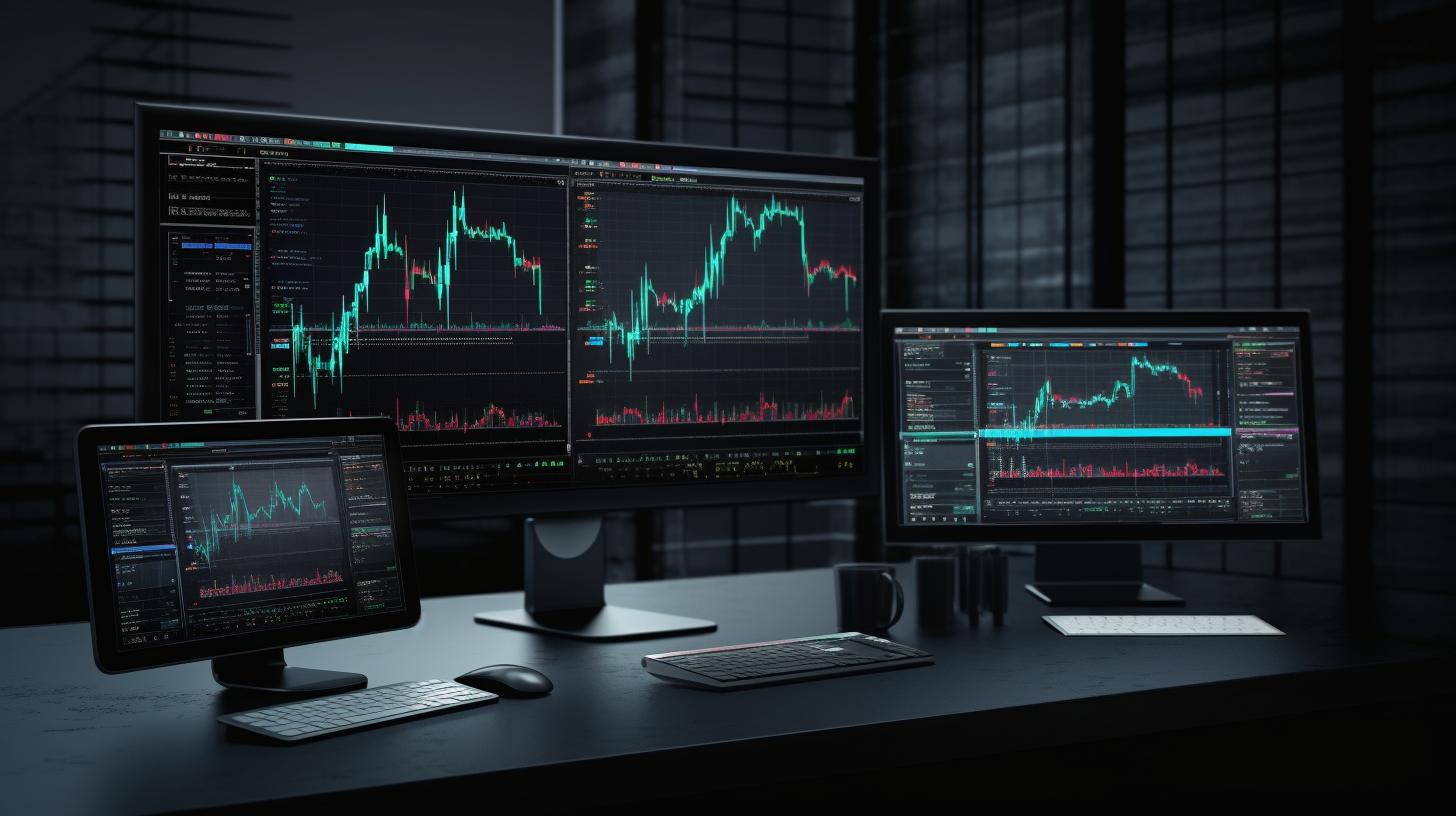
The foreign exchange market, commonly known as Forex, has come a long way since its inception. Decades ago, trading was conducted through direct telephone lines, where deals were verbally confirmed. Today, it’s a vastly different landscape. Automated trading, which allows traders to pre-set parameters for buying and selling currencies, has seen a meteoric rise. According to recent statistics, approximately [XX%] of Forex trades are now executed without human intervention.
However, this automation surge doesn’t mean one can dive into the market unprepared. A trader’s success in automated trading often hinges on their choice of broker. Just as the backbone of a building determines its strength, a supportive broker can be the bedrock of a fruitful automated trading experience.
Choosing a broker who understands the intricacies of automated systems, offers a robust platform, and provides top-notch technical support can make all the difference. As we venture further into this topic, remember this pivotal truth: the right broker doesn’t just facilitate trades; they amplify success.
Importance of Selecting the Right Broker for Automated Trading
In the world of automated trading, not all brokers are created equal. The significance of choosing the correct broker can’t be understated, and here’s why:
- Differences in Technology and Platform: Consider John, an enthusiastic trader who decided to implement his automated strategy using a renowned algorithmic tool. He chose Broker A, seduced by their marketing campaigns. However, John soon discovered that Broker A’s platform lacked support for his chosen tool, leading to frequent downtimes and missed opportunities. On the other hand, had he gone with Broker B, known for its superior tech integration, his experience might have been seamless.
- Brokerage Fees and Trading Profitability: Sarah, a budding forex trader, began her journey with Broker X. Their flashy interface and customer service wooed her. But she soon realized that their high spreads and hidden fees consumed a significant portion of her profits. Her friend Mike, who opted for Broker Y with transparent fees and lower spreads, enjoyed a better profit margin on similar trades.
- Security Measures and Trustworthiness: A few years ago, a prominent broker (Broker Z) faced a massive cyberattack, compromising the financial data of thousands of traders. Traders who had prioritized security and gone with more trustworthy brokers, like Broker W with its multi-layered encryption and regular security audits, slept soundly at night.
To navigate the vast sea of Forex brokers, it’s essential to prioritize technology compatibility, understand fee structures, and never compromise on security. Your broker is not just a platform; it’s your trading partner. Choose wisely.
Top Forex Brokers for Automated Trading in 2023
Broker AlphaFX
Overview and History: Founded in 2005, AlphaFX has established itself as a trusted name in the Forex industry. With its roots in London, the broker has expanded its operations across three continents, serving both retail and institutional traders.
Platform Details and Software Compatibility: AlphaFX boasts the cutting-edge MetaTrader 5 (MT5) platform, renowned for its user-friendly interface and superior automation capabilities. The platform supports various algorithmic tools and Expert Advisors (EAs), allowing traders to customize and implement their automated strategies seamlessly.
Pros:
- Strong regulatory oversight by agencies like FCA and ASIC.
- Wide range of currency pairs and other tradable assets.
- High-speed order execution with minimal slippage.
Cons:
- Some users have mentioned challenges in the mobile trading app.
- Withdrawal fees are slightly higher than some competitors.
Broker BetaTrade
Overview and History: Incorporated in 2010 in Sydney, BetaTrade quickly rose through the ranks, capitalizing on technological advancements and customer-centric services. They now have a global clientele spanning over 50 countries.
Platform Details and Software Compatibility: BetaTrade offers both MT4 and MT5 platforms, catering to a broad audience from beginners to seasoned traders. They’ve integrated state-of-the-art API interfaces, enabling traders to connect proprietary tools and bots without hitches.
Pros:
- Offers a comprehensive educational portal for traders.
- Competitive spreads and a transparent fee structure.
- Round-the-clock customer support in multiple languages.
Cons:
- A limited number of tradable commodities compared to other brokers.
- Occasional lags reported during peak trading hours.
Considerations Before Opting for Automated Trading
Venturing into automated Forex trading can be alluring, given its promise of potential profits with reduced human effort. However, there are critical considerations every trader should bear in mind.
Firstly, a deep understanding of the Forex market is indispensable. Bots operate based on predefined algorithms, but a trader’s comprehension of market nuances ensures those algorithms are sound. For instance, recognizing how geopolitical events impact currency values can guide your bot’s decision parameters.
Secondly, always test bots in demo environments. Just as pilots train in simulators before real flights, traders should test their strategies without real money at stake. This step helps identify glitches and fine-tune strategies.
Lastly, continuous monitoring is essential. Automation doesn’t equate to ‘set and forget’. Markets are dynamic, and unforeseen anomalies can arise. Staying vigilant allows traders to intervene when necessary, safeguarding their investments.
In essence, while bots are powerful tools, they’re only as effective as the informed trader behind them.
Conclusion
In the realm of automated Forex trading, the right broker is paramount to success. As we’ve highlighted, they’re not just facilitators but partners in your financial journey. When equipped with the proper research, rigorous testing, and an ever-curious mindset, the rewards of automation can be substantial. Here’s to leveraging technology intelligently, with the backing of a trusted broker, and unlocking new horizons in trading.
FAQs
Automated trading, often referred to as algorithmic trading, entails using computer programs to execute trades based on predetermined criteria. These algorithms analyze market data, identify potential trading opportunities, and place trades without human intervention.
Benefits:
Efficiency: Bots can analyze vast datasets rapidly, ensuring timely trades.
Emotionless Trading: Reduces the impact of human emotions on trading decisions.
Consistency: Maintains a uniform trading strategy.
Risks:
Technical Glitches: Software errors can lead to unintended trades.
Over-reliance: Blindly trusting bots without oversight can be perilous.
The Forex market, dealing in global currencies, possesses attributes making it ripe for automation.
Unique Attributes for Bots: Forex operates 24/5, allowing bots to trade round-the-clock, capitalizing on global events.
Volatility: Currency prices fluctuate frequently, offering multiple trading opportunities.
Liquidity: Being the world’s largest financial market ensures high liquidity, facilitating quicker trade executions.
Brokers play an integral role in ensuring smooth automated trading experiences.
Platform Integration: Top brokers provide platforms, like MT4 and MT5, designed to integrate seamlessly with trading algorithms.
Trading Software Compatibility: They support a range of trading software, allowing traders flexibility in choosing their automation tools.
Technical Support & Customer Service: Reliable brokers offer 24/7 support, assisting traders in addressing technical glitches or clarifying automation-related queries.





